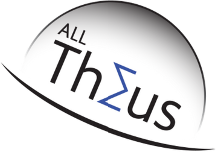Let's Get Noughty About The Electron Electric Dipole Moment
Many physicists ascribe to the idea that the language of the universe is mathematics, and that we can describe everything with mathematics {or is the universe merely ruled by numbers? 😊}. Tanya Roussy explains that whilst this might sound crazy we've got pretty close, managing to describe everything we know of with only two equations. One covers gravity, and one equation covers everything except gravity - the standard model, because it's a mathematical model for the universe. From the 1970’s people have been testing it to see if this big theory of everything is right… but then Stephen Wolfram thinks it can be explained by dots!
We highly recommend a listen to Tanya Roussy (then at University of Colorado, Boulder) discuss her work building on Nobel Laureate Eric Cornell’s idea, trying to constrain the electric dipole moment of the electron during a Science Magazine podcast (c14:25 in). One bit of the discussion that particularly appealed to us was the answer to the question of why she is measuring 0, why would she do that? Her reply? “I’m really excited about 0? Well did you consider I’m a (giant) huge nerd!”
This links well with our discussion of nerds as passionately enthusiastic people!
She succinctly explains the experiment and why the electron’s electric dipole moment (eEDM) being zero could be just as interesting as not zero to people studying the big mysteries of the universe like why matter and antimatter didn’t wipe each other out at the beginning of the universe. We also provide a link to a related commentary and a video discussing using ‘old’ particles to search for ‘new’ ones (with some great opening cartoons)!
And here is a good summary of the experiments precision!
“Cornell, Roussy and their team at NIST and JILA recently set a record for precision measurement of eEDM, improving on previous measurements by a factor of 2.4.
How precise is that? If an electron were the size of the Earth, their study found that any asymmetry that exists would be smaller than the radius of an atom, Roussy explained.”
The team was led by Eric Cornell and Jun Ye with other members including William Cairncross, Luke Cardwell, Kai Boon Ng, Sun Yool Park, Noah Schlossberger, Yuval Shagan, Anzhou Wang and Trevor Wright.
See also
Physicists Measure the Electron’s Electric Dipole Moment To Unprecedented Precision
A new bound on the electron's electric dipole moment
